Our Board of Patrons
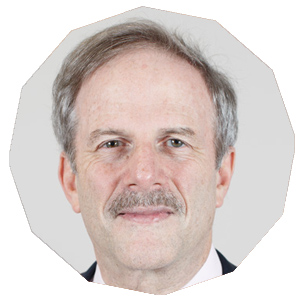
Professor DAVID CopoloV
David is a Professor of Psychiatry and Honorary Professor of Physiology at Monash and Professorial Fellow in the Department of Psychiatry at the University of Melbourne. He is a Director on the Board of the Royal Women’s Hospital and was Director of the Australian Nuclear Science and Technology Organisation (ANSTO) from 2008-2016, and a Director of the Peter MacCallum Cancer Institute from 2004-2013, the last six as Deputy Chairman.
He is a passionate advocate for a reversal of the dehospitalisation which has taken place in the public mental health sector.
He has held several advisory appointments to federal and state governments, including 12 years as a member of the Victorian Ministerial Advisory Committee on Mental Health and eight years as the psychiatric expert on the Australian Drug Evaluation Committee.
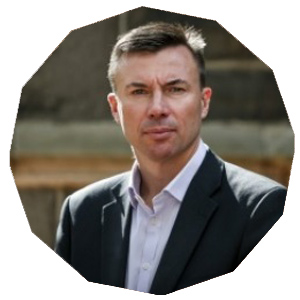
PAUL RONALDS
Paul is one of Australia’s leading voices on poverty eradication and international development. His diverse background encompasses senior executive roles in government, the private sector and domestic and international non-government organisations (NGOs). From co-founding one of Australia’s first online companies to assisting tsunami-affected people in Sri Lanka, Paul’s experience gives him unique insights into some of the world’s most significant social, economic and political challenges.
Paul joined Save the Children Australia as Chief Executive Officer in July 2013. He is committed to ensuring Save the Children lead the way in child rights, humanitarian response, healthcare and education – helping children everywhere fulfil their potential.
Prior to joining Save the Children, Paul was First Assistant Secretary responsible for the Office of Work and Family in the Department of Prime Minister and Cabinet. In this role, Paul provided advice to the Prime Minister of Australia on a broad range of social and economic policies designed to support families and communities.
In the NGO sector, Paul worked for World Vision Australia as Deputy Chief Executive Officer and Director of Strategy. He was also Chief Operating Officer of Urban Seed, an innovative and dynamic NGO that provides a range of services to marginalised people in Melbourne’s inner city.
Paul has worked as a corporate lawyer with international law firm Herbert Smith Freehills, and is the co-founder of wishlist.com.au, one of Australia’s most successful e-commerce companies.
A graduate of the St James Ethics Centre’s Vincent Fairfax Fellowship in Ethics and Leadership, Paul also has degrees in Economics and Law with Honours from Monash University, a Graduate Diploma in Applied Finance and a Masters in International Relations from Deakin University.
He is the author of The change imperative: Creating a next generation NGO – a book that examines the challenges faced by international NGOs in a rapidly evolving global political context.
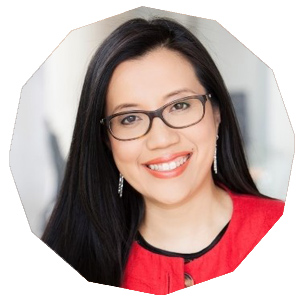
SELINA LO
Selina is a medical doctor and an experienced senior global health professional.
She has worked in the peer review medical publishing industry, government advisory and non-profit sectors, where she managed strategic operational, advocacy, and health research projects.
Selina graduated from the University of Melbourne, School of Medicine in 1993, and later trained in tropical medicine and hygiene in London and clinical HIV AIDS. She also has a post-graduate degree in international and public law from the University of Melbourne.
For the past seven years, Selina has been a senior editor at The Lancet. Based in London and Beijing, she specialised in child health and led global health commissions, including the Rockefeller Lancet Planetary Health and Climate Change and Health Countdown reports.
Selina remains as a consulting editor to The Lancet, focusing on Australia and global health. She will also take up an honorary role at the University of Sydney’s newly launched Planetary Health Platform in the School of Public Health.
Past positions include Medical Director of Médecins Sans Frontières (MSF), Doctors without Borders (MSF) Campaign for Access to Essential Medicines in Geneva, and as clinical advisor to the Clinton HIV AIDS Initiative (CHAI), where she was seconded to the Chinese Center for Disease Control and Prevention (CDC).
Between 1996 and 2005 Selina led MSF’s medical humanitarian projects for refugee and vulnerable populations in Afghanistan, Bangladesh, Myanmar, Thailand and China.
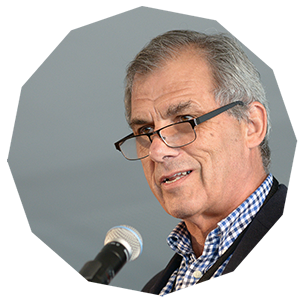
Professor Rob Moodie AM
Professor of Public Health, Melbourne School of Population Health, University of Melbourne
Professor of Public Health, College of Medicine, University of Malawi
Rob Moodie is Professor of Public Health at the Melbourne School of Population Health. In July 2015 he took up a new post as Professor of Public Health at the College of Medicine, University of Malawi. He was the inaugural Chair of Global Health at the Nossal Institute from 2007-2012. He first worked in refugee health care in the Sudan and later for Congress, the Aboriginal community controlled health service in Central Australia. He was the inaugural Director of Country Support for UNAIDS in Geneva from 1995-98, and was CEO of VicHealth from 1998-2007. He chaired the National Preventative Health Taskforce from 2008-2011 and was a member of the Commission on AIDS in the Pacific.
He chairs the GAVI Alliance’s Evaluation Advisory Committee, and advises the WHO in the areas of NCDs and Health Promotion. He has particular interests in non–communicable diseases and HIV/AIDS and is involved in teaching public health leadership and health promotion in Melbourne, Mozambique, and in Blantyre, Malawi since July 2015. He has co-edited and co-authored 4 books including Promoting Mental Health, Hands on Health Promotion and his most recent, Recipes for a Great Life written with Gabriel Gate.
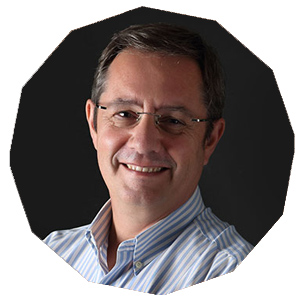
TIM FRANCE
Tim is the founder of Inis Communications. With over 20 years’ experience in science, public health, and development, Tim has considerable depth of knowledge, making him well-suited to lead the team. He has worked on a wide variety of health-related topics, including a significant number of landmark non-profit projects. He has held positions in the World Health Organization’s Global Programme on AIDS and UNAIDS, the Roll Back Malaria Partnership, the Foundation du Présent, and the founding of Health & Development Networks. Tim has written numerous reports, papers and book chapters, as well as many news, features, and perspective pieces on international health policy. He has served as Scientific Editor for two popular international scientific journals: the British Journal of Haematology and the European Journal of Cancer. Tim has been an approved editor at WHO since 1993.
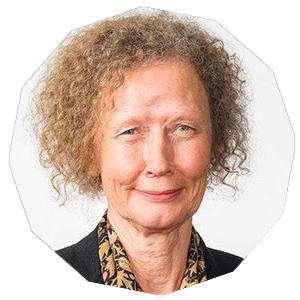
HELEN EVANS
GAVI, Burnet, Hollows, Nossal fellow
Helen Evans served as Deputy Chief Executive Officer at Gavi, The Vaccine Alliance based in Geneva from 2009 until her retirement in 2014. Prior to joining Gavi, she served as Deputy Executive Director at the Global Fund to Fight AIDS, Tuberculosis and Malaria between 2005 and 2009. She is an expert in public health and development and social policy. In the early 1990s Helen managed the National Communicable Diseases Program in the Australian Department of Health. For seven years prior to moving to take up her position as deputy at The Global Fund she headed up the Australian Government Office for Aboriginal and Torres Strait Islander Health.
Ms Evans has been involved in the work of a range of international health and development organisations including serving on the inaugural board of UNAIDS. Now based in Melbourne she currently acts as Special Advisor to the Gavi CEO in the Asia Pacific Region, has an honorary appointment as Associate Professor at the Nossal Institute for Global Health at the University of Melbourne, sits on the Advisory Council of Pacific Friends of the Global Fund to Fight AIDS, Tuberculosis and Malaria, and is a board member of The Fred Hollows Foundation and the Burnet Institute.
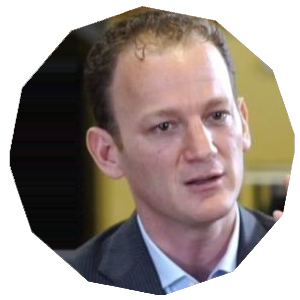
ELYA TAGAR
Senior Director for HIV, TB, and Health Financing, CHAI
“Global health represents one of humanity’s ultimate tests. We all say and personally believe that all life is equally valuable; global health tests us to prove that we mean it”.
Elya Tagar has had a broad, exciting career in public health, primarily working in strategy and consulting. After receiving a Master of International Affairs he worked briefly with McKinsey and Co. before joining the Clinton Health Access Initiative (CHAI), and is currently serving as Senior Director for HIV, TB and Health Financing.
Prior to moving back to Melbourne, Elya worked as a Country Manager and Regional Director in Congo and Senegal, where he managed CHAI’s HIV work. During this period, he helped CHAI partner countries secure over $4bn in funding for HIV, TB, and Malaria.
Aside from his incredible professional record, Elya is a thought-leader and proponent for a cross-sectional public health sector.
“We need you to be as effective as you can be, in what you are best at. Know what you are good at, know what makes you energised, and know what the world needs. Look for the sweet spot where the three meet, and there you will be most effective”, he said in our recent interview with him.
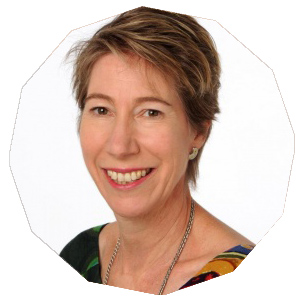
PROFESSOR SUSAN SAWYER
Professor Susan Sawyer holds the chair of adolescent health at The University of Melbourne and is director of the RCH Centre for Adolescent Health. Professor Sawyer trained as a respiratory paediatrician where she developed a major interest in models of care for complex adolescents such as those with cystic fibrosis, especially around aspects of sexual and reproductive health. Her current practice is in the field of Adolescent Medicine, a field that she has helped to develop in Australia and increasingly internationally. Her current interests revolve around health services for adolescents, including the development and evaluation of innovative models of clinical service for adolescents in both primary care and specialist settings.
Professor Sawyer is increasingly involved in global adolescent health. She has been a consultant to WHO, UNICEF, UNFPA and the World Bank. She has co-led two recent series on Adolescent Health for the Lancet, and is a commissioner on the Lancet’s ‘Commission on Adolescent Health and Well-being’, which brings together some of the world’s leading universities including the University of Melbourne, Columbia University, University College London, the London School of Hygiene and Tropical Medicine and the University Washington.
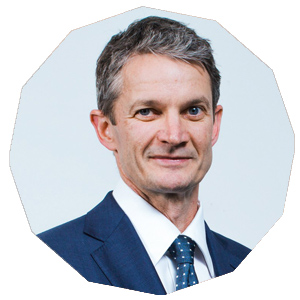
PROFESSOR BRENDAN CRABB AC
Professor Brendan Crabb AC PhD FAHMS is an infectious disease researcher with a special interest on malaria. His research group develops and exploits genetic approaches to better understand malaria parasite biology, principally to help prioritise vaccine and drug targets.
Since 2008 he has been the Director and CEO of the Macfarlane Burnet Institute for Medical Research and Public Health Ltd (Burnet Institute). He is the past-President of the Association of Australian Medical Research Institutes (AAMRI), the peak body for independent medical research Institutes in Australia.
He is currently a Fellow of the Australian Academy of Health and Medical Sciences (FAHMS), serves on the Council of the National Health and Medical Research Council (NHMRC) of Australia and on the boards of both AAMRI and Research Australia.
Internationally, he serves on the International Advisory Boards of both the Sanger Institute (UK) and the Vaccine Science Portfolio Advisory Committee at PATH/MVI (USA), a group he chaired for the previous four years. In his home state of Victoria, Professor Crabb serves on the Victorian Government’s Science, Medical Research and Technology (SMaRT) Panel and is President of the Victorian Chapter of AAMRI.
Apart from his own research and leading the Burnet Institute, Australia’s leading independent global health research organisation, Professor Crabb has a strong general interest in promoting policies that embed medical research into local and international health program delivery, especially the translation of research into health solutions.
In 2015, he was awarded a Companion of the Order of Australia, Australia’s highest civilian honour, for contributions to better understanding infectious diseases and their impact on poor and vulnerable communities, and for fostering medical research as an advocate, mentor and administrator.